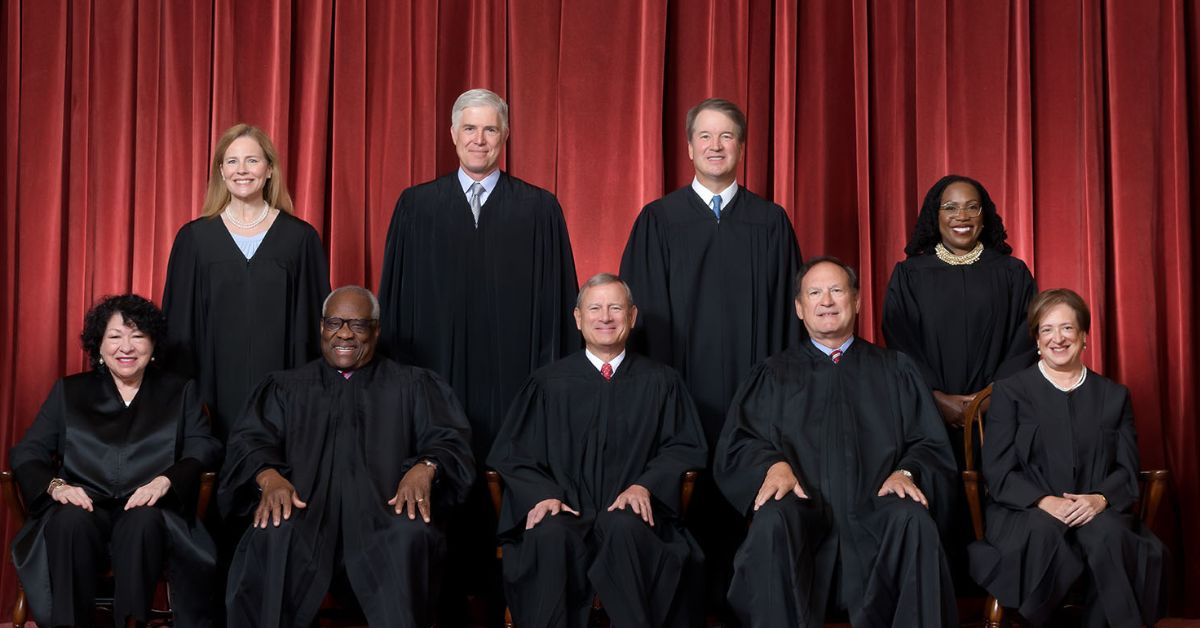The U.S. Supreme Court has thrown out a case that sought to challenge the Food and Drug Administration’s expansion of the abortion pill mifepristone.
In a 9 to 0 opinion, the highest court in the United States said that the doctors and medical groups challenging the FDA’s expansion of the drug lacked standing in the case. Justice Brett Kavanaugh issued the opinion for the Court.
Kavanagh stated in his opinion that the plaintiffs did not meet the requirement for standing, even if their desire to limit the drug was sincere. He stated, in part,
“The plaintiffs have sincere legal, moral, ideological, and
policy objections to elective abortion and to FDA’s relaxed
regulation of mifepristone. But under Article III of the
Constitution, those kinds of objections alone do not
establish a justiciable case or controversy in federal court.
Here, the plaintiffs have failed to demonstrate that FDA’s
relaxed regulatory requirements likely would cause them to
suffer an injury in fact.For that reason, the federal courts are the wrong forum for addressing the plaintiffs’ concerns about FDA’s actions. The plaintiffs may present their concerns and objections to the President and FDA in the regulatory process, or to Congress and the President in the legislative process. And they may also express their views about abortion and mifepristone to fellow citizens, including in the political and electoral processes.”
Citation
Kavanaugh went on to say that someone may have legal standing to challenge the FDA, but the current plaintiffs did not because they could not have standing on behalf of “others.”
Justice Clarence Thomas also discussed what is referred to as “associational standing” in his concurrence with Kavanaugh. Thomas says the court should review associational standing and how it comports with the U.S. Constitution.
In his closing paragraph, Thomas said,
“In this suit, rejecting our associational standing doctrine is not necessary to conclude that the plaintiffs lack standing. In an appropriate case, however, the Court should address whether associational standing can be squared with Article III’s requirement that courts respect the bounds of their judicial power.”
Citation
The Alliance Defending Freedom, a non-profit legal organization, responded to the Supreme Court’s opinion, stating in part,
“The court recognized that our doctors would have standing to protect their conscience rights. The government’s initial position was that federal law would not protect our doctors from being forced to participate in abortions. Yet at the Supreme Court, the FDA changed its position and said that federal conscience laws definitively protect doctors in these circumstances.
This about-face explains why the Supreme Court parted ways with every other court to consider this case. And it resulted in the court recognizing that ‘[f]ederal law fully protects doctors against being required to provide abortions or other medical treatment against their consciences.”
Citation
The ADF also criticized the FDA’s expansion of the drug and said that leaving girls to take the drug alone without the in-person care of a doctor was too dangerous.
Planned Parenthood celebrated the opinion as a temporary victory on X, saying:
“Good news for now: SCOTUS ruled against restricting access to mifepristone, a pill for medication abortion & miscarriage care. It’s still available in states that allow it. (hand emoji)
But this case is being sent back to the district court. The fight for our rights isn’t over yet.”
Citation





